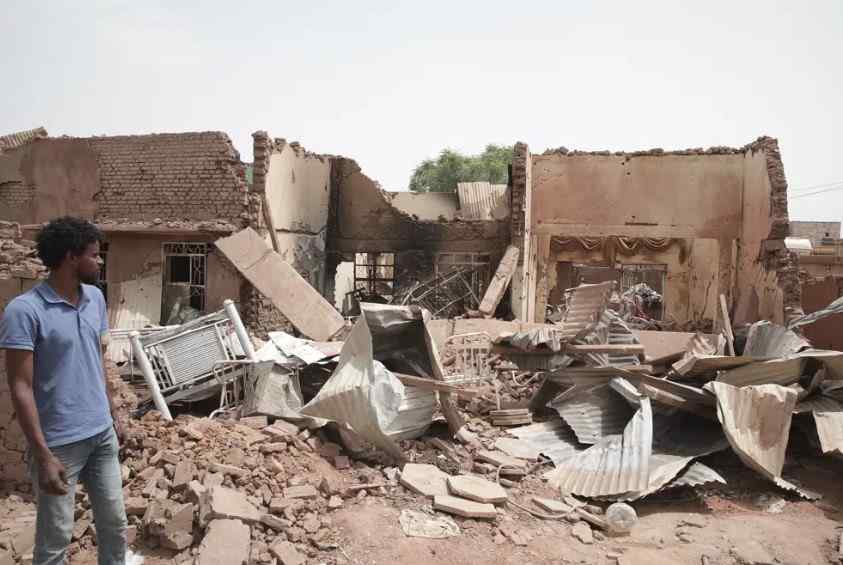A fighter jet was downed in Khartoum on Tuesday amidst intense confrontations and artillery bombardments in several districts of Sudan’s conflict-ridden capital, according to eyewitness accounts.
Witnesses in the northern region of Khartoum reported seeing pilots parachuting as the aircraft plummeted towards the earth. An inside source from the paramilitary Rapid Support Forces (RSF) disclosed to AFP that the RSF were responsible for shooting down the military plane.
The RSF later confirmed they had “apprehended the pilot post-landing” in a statement, which also accused the army of committing “atrocious massacres” within the Khartoum region.
A bitter conflict has been raging since 15th April between Sudan’s army, commanded by General Abdel Fattah al-Burhane, and the RSF paramilitaries led by former deputy General Mohamed Hamdane Daglo. The war has claimed nearly 3,000 lives, as per NGO Acled, and displaced approximately 2.8 million individuals, according to UN reports.
Residents of Omdurman, located in the northern suburbs of the capital, detailed “violent altercations employing a range of weapons” on Tuesday.
Additional eyewitness accounts described “aerial strikes in the vicinity of the state television building”, which the RSF had attacked earlier this week and employed anti-aircraft missiles against on Tuesday.
Machine gun battles were also reported by locals in the eastern part of the capital. Witnesses have reported that the army launched rockets and heavy artillery at RSF bases in central and northern parts of the capital, resulting in damaged homes and civilians seeking refuge in one of the few operational hospitals.
In both Khartoum and the western region of Darfur, the fighting has predominantly impacted densely populated neighbourhoods. Streets are reportedly strewn with casualties and houses have been hit by missile fire.
Caught in the crossfire, civilians have had to ration water, food, electricity, and medical supplies for nearly three months. Intense combat has erupted across Omdurman, a city on the opposite bank of the Nile from Sudan’s capital, Khartoum, as the army attempts to sever supply routes used by its paramilitary adversaries to transport reinforcements.
The conflict erupted between the army and RSF on 15th April, leading to daily combat in the capital, ethnically driven killings in the Darfur region, and the looming threat of a protracted civil war in Sudan. The RSF quickly gained control of large parts of Khartoum, drafting in additional fighters from Darfur and Kordofan as the conflict escalated.
Residents reported that Tuesday’s fighting in Omdurman was the most severe in recent weeks. As the army defended a police base from an RSF attack, the situation on the ground is precarious.
The conflict ignited due to disagreements between the army and RSF over an internationally supported plan for a transition to civilian governance, four years following the ousting of long-time leader Omar al-Bashir during a public uprising.
Multiple ceasefires were brokered by Saudi Arabia and the United States in Jeddah, but these were suspended last month as both sides persistently violated the truces.
As the conflict looks set to escalate in western Sudan, tribal leaders from South Darfur declared their allegiance to the RSF on Monday. The RSF, originally formed from the Arab militias that helped quell a rebellion in Darfur after 2003, has since evolved into a national, officially recognised force.
According to the most recent United Nations figures, approximately 2.8 million individuals have been displaced since the outbreak of fighting, including nearly 650,000 who have sought.
Image Credit: Marwan Ali/AP




